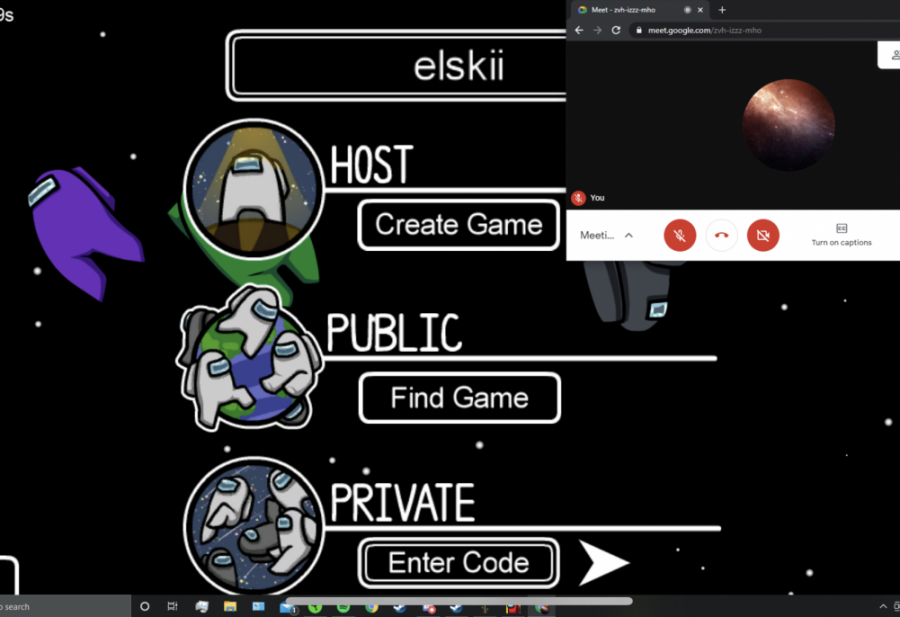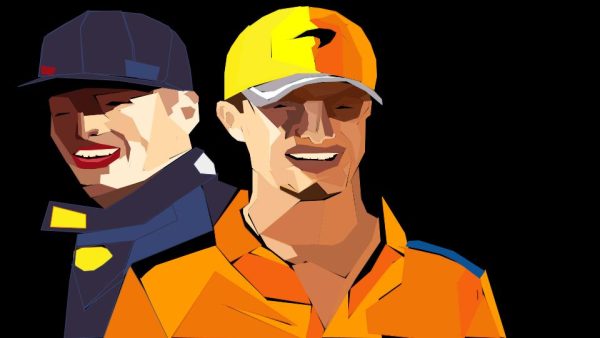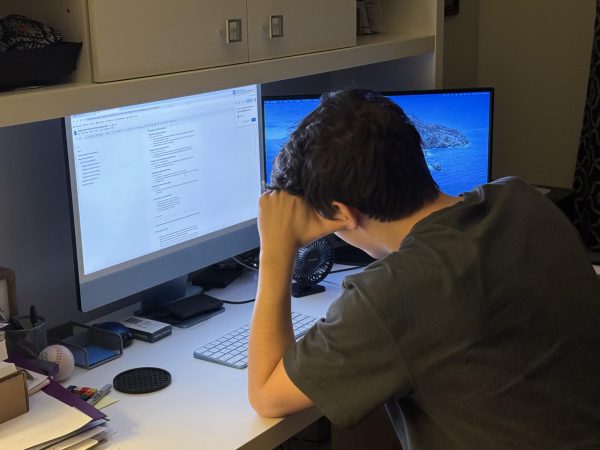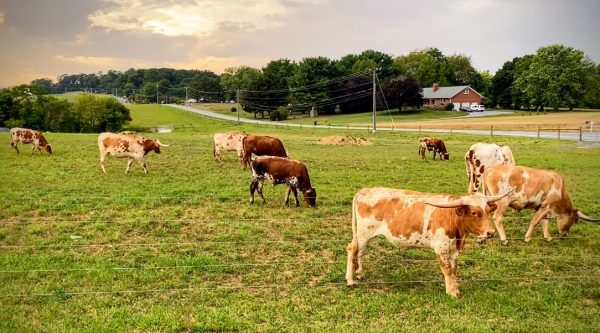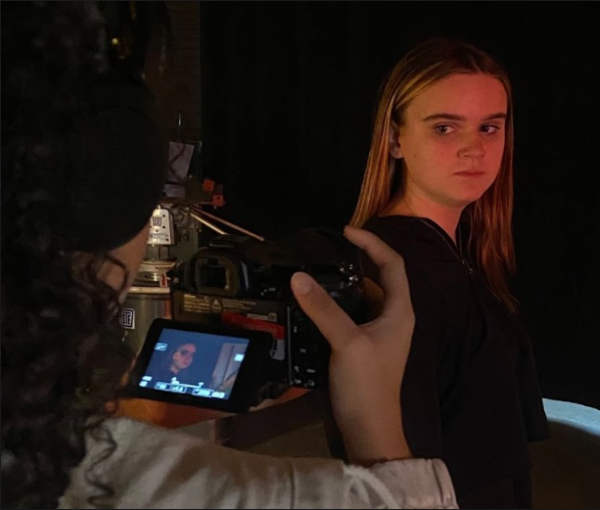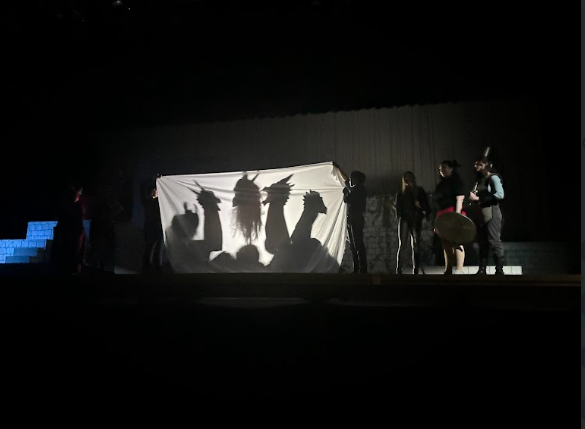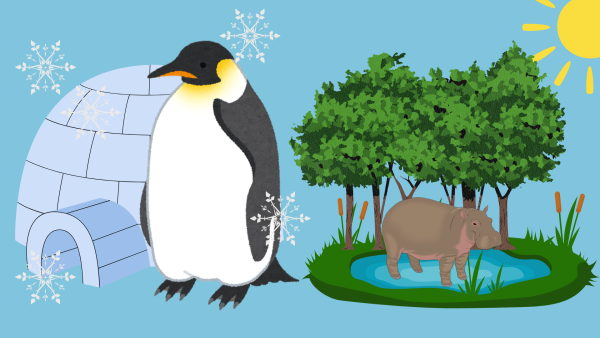Triumph or struggle: COVID sometimes crushes the student work ethic
Will students be prepared to return to school or has COVID left an irreversible effect on their work ethic?
How many students are doing something else during the required Google Meets?
From kindergarten to college, students of all levels have been faced with their biggest challenges. virtual learning.
With the positivity rate going down across the U.S., students are returning to their school buildings, mainly in a hybrid learning situation. The most common way of reintroduction of students. Hybrid school is when students have school five days a week but, half of the students go into school on Monday and Tuesday and the other half attends in person learning on Thursday and Friday. Wednesday is a synchronous day from home.
Many studies have been conducted revolving around the ideas of students’ work ethic during virtual learning.
One study from the University of Colorado Boulder, asked a sample of 100 college students questions about their experience during virtual learning. Although the data was collected in April 2020, the results are interesting . The questions varied from how their mental and physical health have been affected, to how their education has been affected. One question in particular really stood out when regarding work ethic.
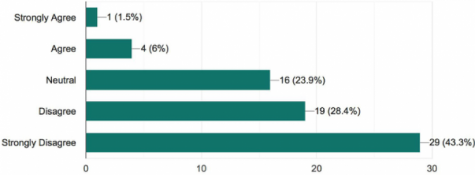
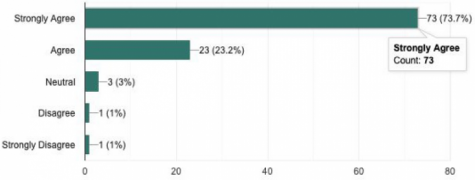
The study asked the students two very important questions: “I am doing better in school since the online switch because I am at home” and “It is harder to find the effort to do homework since the COVID-19 pandemic.
The results didn’t have much variation. The majority of the responses fell under disagree or strongly disagree for the first question. Bringing to light the work production of students to have a decrease. For the second question, the majority of the answers were strongly agreed. Virtual learning has depleted the students’ feeling to put forth effort to complete their work.
Beyond those two questions, the study went more into depth on how virtual learning has affected students: stress, mental and physical health, and view on school difficulty. All the answers to those questions added to the development of a non beneficial work ethic in the students.
Even at a local level, we can see that students of varying levels are having the same struggles as the students in the study. Local students even provided a more in depth explanation on what has affected their work ethic and why.
Students from the high school and middle school level were asked similar questions and gave similar responses, even with the huge educational gap that divided the two. Lancer Media asked: “How do you feel your work ethic has changed during virtual learning?” and “How do you think virtual learning will affect you for the following school year?”
Junior, Liam Sterling said, “My work ethic has drastically changed from the previous year to now. With the availability and easy access I have to utilize Google for everything on my computer. I definitely take advantage of it.”
New Market Middle School student Peyton Maloney said, “Virtual learning has changed my work ethic because virtual learning has allowed me to not participate as much as I would during in person learning. So Google has become a friend when I don’t participate as much.”
The response brought up the fact that many students are able to complete school without paying attention. Students have more availability to learn the information on their own or search up the answers to complete the class work they have. That is the biggest problem that is causing these students’ work ethic to change.
If students are not particularly dedicated to learning, how will that affect their future plans?
Sterling said, “This year will affect my future learning not to a high degree as others may be affected. For students, classes such as Spanish and math are much harder to learn through online and on top of that, those classes are built upon. You need to understand the math and Spanish so you can successfully continue within that course. Luckily I’m naturally good at math and I no longer need to take Spanish, but I feel for the students that do.”
Maloney was one of the students that had classes that were hard to learn virtually and required you to fully participate and pay attention to be successful later.
Maloney said, “For the most part my learning won’t be hugely impacted by virtual learning, except this year I had Spanish and I’m not sure if I will be prepared for the next Spanish level.”
Worried that Maloney hasn’t learned the material for Spanish 1. He is planning to re take Spanish 1 next year so he can be well prepared and learn in school for Spanish 2.
Parents are much more concerned about the lasting impact of virtual learning. As they are in the workforce, they have more knowledge about the impact this year has had.
Michelle Maloney is a teacher at New Market Middle School and parent of Peyton Maloney. As a teacher, Mrs. Maloney is very understanding with how students are feeling and reacting to virtual school.
Maloney believes it’s not the fault of individual students. It’s the hybrid model that has many factors. Maloney said, “Kids are expected to pay attention to a screen, Accountability through a screen is harder to achieve, and passive learning is a difficult method.”
Another parent, David Gregory, father of Camden Gregory, gave a different reason to what he believes is the problem.
Mr.Gregory said, “The biggest problem in virtual learning that is damaging the students’ work ethic is, the lack of human interaction…the more we don’t interact face-to-face, the harder learning becomes for students.”
When students are physically in the building, they are able to concentrate and focus on the material at home. When at home students are exposed to so many distractions such as; playing video games, sleeping, eating, doing other work, family, and so much more. All those factors are what has led and what is leading students to develop a bad work ethic.
Your donation will support the student journalists of Linganore High School. Your contribution will allow us to purchase camera/recording equipment and software. We hope to raise enough money to re-start a monthly printed issue of our paper.


